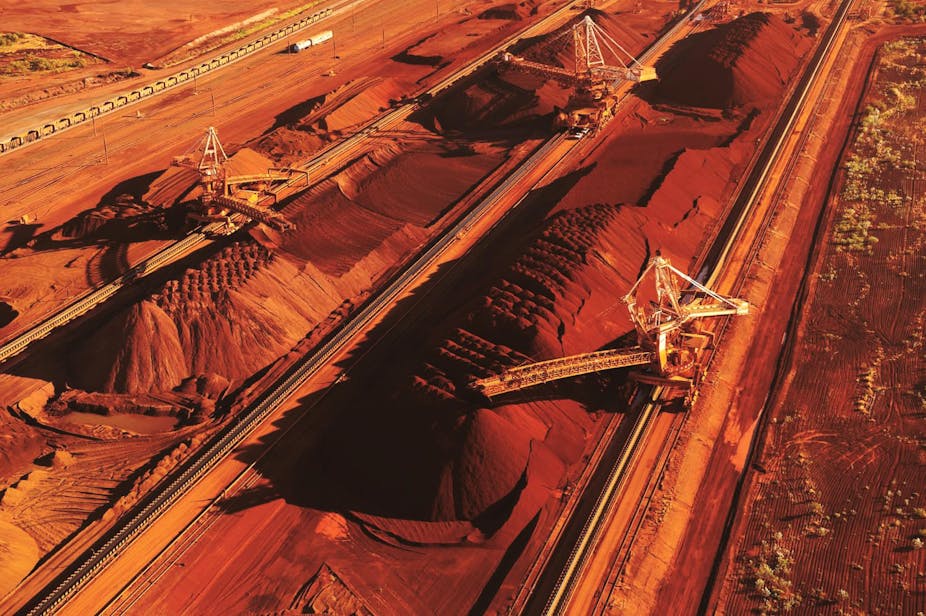The prospect of a four kilometre long and one kilometre deep open pit mine captures the imagination. Think about a chasm as deep as Mount Everest is high. It was going to take years to remove the overburden hiding the precious minerals in what was to become the largest mine in the world.
Hopes were understandably high in South Australia that the Olympic Dam expansion would get the green light by the BHP-Billiton Board.
Those hopes have been dashed, at least in the short term. The disappointment was palpable across the State. Premier Jay Weatherill was quick to acknowledge this, putting BHP-Billiton on notice that they have some ground to make up.
He said that he would be bringing community and industry concerns about the cost of not proceeding to future negotiations. The benefits to South Australia from thousands of hours of investment in the development of the project needed to be realised in a significant way in the future, was his message.
The stakes were high. The $20 billion project would have generated more than 10000 jobs in the early phases of development, providing a significant boost to the State’s ailing construction sector and creating opportunities for well positioned engineering, manufacturing and service companies. Mining royalties would have risen significantly once the mine was operational.
So what went wrong? Was the project scuttled by the carbon tax or the mining tax? Did the South Australian and Australian governments do enough to secure it? In short, no, government action cannot be blamed.
Announcing a sharp fall in profitability, BHP-Billiton CEO Marius Kloppers made it clear that it was “subdued commodity prices and higher capital costs…that had led to the decision”.
The Leader of the Opposition in South Australia, Isobel Redmond declared that the mining and carbon taxes were the cause. The State and National Governments had blundered, she claimed, resulting in a disaster equivalent to the collapse of the State Bank. Tony Abbott agreed.
BHP Billiton Senior Executive, Andrew Mackenzie said otherwise. He was full of praise for the South Australian Government. They “have been fully supportive of Olympic Dam” and have “created an environment that is highly conducive to business development and the Olympic Dam expansion project”, he said.

BHP Billiton’s short-term decision regarding the expansion of Olympic Dam has its roots in the global financial crisis which put downward pressure on unsustainably high commodity prices. All of this is a reminder that mining booms invariably falter in the face of global economic crises. The millions of tonnes of minerals that lay deep underground at Olympic Dam are not going to go away. BHP-Billiton knows this and will wait for the right time to exploit the rich deposits that are available to them.
With declining commodity prices, the costs of removing billions of tonnes of overburden at Olympic Dam would have become less attractive to the profit hungry mining giant. Finding solutions to getting the minerals out more efficiently is now the priority. The expansion plan won’t go ahead as planned but it will go ahead in some form.
Rising commodity prices in a post GFC environment where India and China resume their spectacular growth will breathe new life into further development of Olympic Dam. In the meantime it will continue to be one of South Australia’s major mines, employing over 2500 people.
Will the BHP-Billiton decision lead to terminal decline in the South Australian economy as the South Australian Opposition Leader claims? Unlike Western Australia and Queensland, South Australia is not a mining state. It has experienced an exploration boom but not a mining boom. Most of its jobs are in the manufacturing and service sectors.
Mining employment represents a little over 1 percent of total employment. The sector is a major generator of exports, rising and then falling on the back of fluctuating commodity prices. South Australia is not dependent on mining and therefore less vulnerable, during difficult times like these, to the destabilising impact of a sharp decline in demand for minerals.
While the GFC continues to make life difficult for sections of the Australian and South Australian economy, unemployment remains low by international and historical standards. There will be no significant dis-investment associated with the BHP-Billiton decision on Olympic Dam and a very high chance that an investment program will be announced over coming years. So, it is not a question of if the expansion of Olympic Dam will proceed, but rather when and in what form it will proceed. All of this will be determined by commodity prices, the ongoing impact of the GFC and technological considerations about how to mine more efficiently at Olympic Dam.
The silver lining in the dark cloud that was the BHP-Billiton decision is that there is now an opportunity to get a better deal from the project than was locked into the Olympic Dam Indenture Bill.
Surely minimum local content provisions can be included in any future deal.

